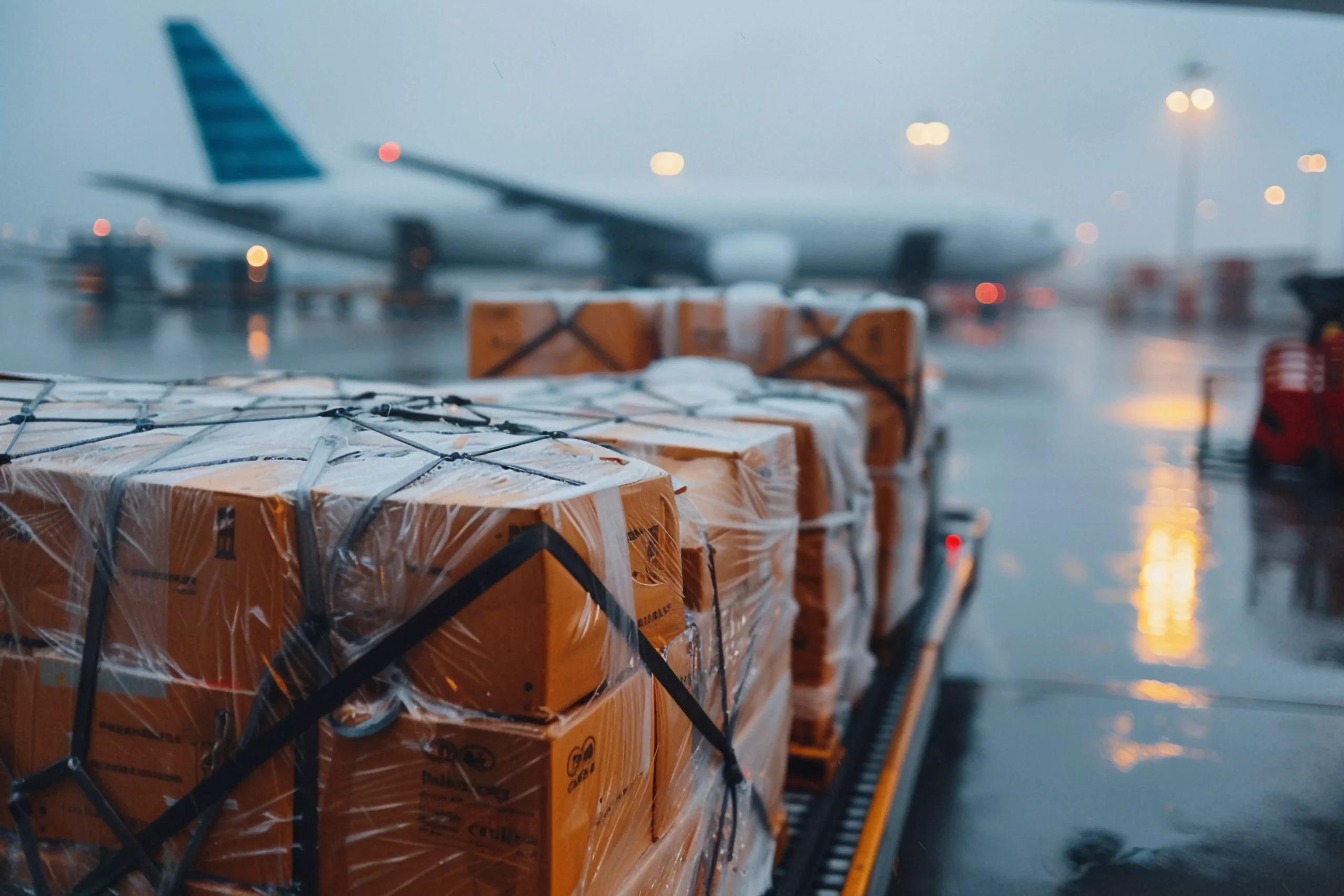Introduction
In today’s fast-paced global trade environment, businesses depend on reliable shipping to move goods across oceans, skies, and highways. From raw materials to finished products, every shipment plays a vital role in keeping supply chains running and customers satisfied.
But what happens when something goes wrong—like cargo damage, theft, or an unexpected delay? These risks aren’t just inconvenient—they can lead to serious financial losses and operational setbacks.
That’s where cargo insurance comes in. It acts as a financial safety net, protecting your business when goods are in transit. Whether you’re an exporter shipping overseas or a local brand managing domestic deliveries, understanding the importance of cargo insurance helps you minimize risk, maintain stability, and avoid costly disruptions.
In this guide, we’ll break down what cargo insurance is, how it works, and why cargo insurance for businesses is one of the smartest investments you can make in today’s logistics landscape.
Key Takeaways:
- Cargo insurance protects your goods during transit by sea, air, or land, safeguarding businesses from theft, damage, or loss.
- Coverage goes beyond carrier liability, offering compensation based on the full declared value of your shipments.
- Multiple types of cargo insurance exist, including marine, air, and land transport, as well as optional All Risk and Named Perils coverage.
- Choosing the right policy depends on cargo type, transport mode, route risk, and transit duration.
What Is Cargo Insurance?
Cargo insurance is a specialized policy that protects goods from loss or damage while they’re being transported—whether by sea, air, or land. It acts as a financial safety net, ensuring that if something goes wrong during transit, such as theft, fire, or an accident, your business doesn’t have to absorb the full cost.
Unlike standard carrier liability—which typically covers only a limited portion of damages—cargo insurance coverage offers broader protection. It compensates the cargo owner based on the declared value of the goods, helping recover losses quickly and maintain business continuity.
Example: Imagine a shipment of electronics worth ₹10 lakh is damaged during a sea voyage. The shipping carrier might reimburse only a small fraction under their liability terms. But with cargo insurance, the business can claim the full insured value, avoiding a major financial setback.
What Does Cargo Insurance Cover?
Cargo insurance for businesses offers financial protection against a wide range of risks that can occur during the transportation of goods. Whether your shipment moves by sea, air, or land, this coverage ensures you’re not left absorbing losses from unexpected incidents.
Here’s what cargo insurance coverage typically includes:
- Theft or Hijacking: Protects against stolen goods during transit or temporary storage
- Fire or Explosion: Covers losses caused by accidental fires or explosions en route
- Natural Disasters: Safeguards cargo from storms, floods, earthquakes, and other environmental hazards
- Handling and Loading Errors: Covers physical damage from improper loading, unloading, or rough handling
- Collisions or Accidents: Provides compensation for damage due to road, air, or sea accidents
However, most policies also have exclusions. Cargo insurance usually does not cover:
- Damage caused by inadequate packaging or labeling
- Losses due to delays or missed delivery windows
- Damage from inherent defects or natural wear and tear of goods
Example: If your shipment of fragile glassware breaks due to mishandling at the port, your cargo insurance policy may cover the loss. But if the items were poorly packaged before shipping, the insurer could deny the claim.
How Does Cargo Insurance Work?
Cargo insurance acts as a financial safety net for your goods while they’re in transit. If something goes wrong—like damage, theft, or loss—your business can recover without facing major financial setbacks. Here’s how cargo insurance works, step by step:
1. Purchase a Policy You choose a cargo insurance policy based on your shipment’s type, value, and route. The insurer calculates a premium depending on the level of risk involved.
2. Shipment Coverage Begins Once insured, your cargo is protected throughout its journey—whether it’s traveling by sea, air, or land. Coverage includes perils listed in the policy, such as theft, fire, natural disasters, and handling errors.
3. Incident Occurs If your shipment is damaged, lost, or stolen, the incident must be documented immediately. You’ll need evidence like photos, bills of lading, and shipping documents.
4. Filing a Claim You notify the insurer and submit the required documentation. The claim is reviewed based on your policy’s terms, coverage type, and limits.
5. Compensation Is Paid The insurer calculates the payout based on the insured value and coverage details. This payment helps you replace lost goods, recover costs, and keep operations running smoothly.
Example: Let’s say you ship goods worth $100,000 via sea, and your policy includes all-risk coverage. During transit, a storm damages part of the shipment. After reviewing your claim, the insurer pays up to the coverage limit—allowing you to replace the damaged goods without taking a financial hit.
Types of Cargo Insurance
Choosing the right type of cargo insurance for your business depends on how you ship goods, what you’re shipping, and the risks involved. Here are the main types to consider:
1. Marine Cargo Insurance Covers goods transported by sea—and sometimes extended to air shipments. Protects against rough weather, piracy, collisions, and mishandling at ports. Ideal for exporters and importers involved in international ocean freight.
2. Air Cargo Insurance Designed for goods shipped via air. Covers losses from turbulence, theft, handling errors, or delays. Recommended for fragile, high-value, or time-sensitive shipments.
3. Land Transport Insurance Protects goods moved by trucks, trains, or other land vehicles. Covers accidents, theft, collisions, and road-related damage. Essential for domestic shipments and door-to-door delivery services.
Optional Subtypes for Extra Coverage
- All Risk Coverage: Offers broad protection against nearly all types of physical loss or damage
- Named Perils Coverage: Covers only specific risks listed in the policy, such as fire, theft, or natural disasters
- Open Cover: Provides continuous coverage for multiple shipments over a set period—ideal for frequent shippers
By selecting the right type of cargo insurance coverage, businesses can tailor protection to match their shipment method, cargo value, and route—ensuring peace of mind and minimizing financial risk.
Why Cargo Insurance Is Important for Your Business
In today’s global logistics, shipments face numerous risks that can lead to financial loss, operational disruptions, and damaged business reputation. Cargo insurance is essential to safeguard your business against these uncertainties.
1. Protection Against Shipping Risks
Goods in transit are vulnerable to accidents, natural disasters, theft, and handling errors. For example, rough seas, road accidents, or storms can damage valuable shipments. Without cargo insurance, businesses bear the full cost of such losses, which can severely impact profits.
2. Financial Security
Cargo insurance provides compensation for damaged or lost goods, protecting your revenue and cash flow. It allows businesses to recover quickly without incurring unexpected financial setbacks. Even high-value shipments can be covered at a fraction of their total cost, ensuring risk is manageable.
3. Compliance with Trade Regulations
Some countries and shipping agreements require cargo insurance. By securing coverage, businesses meet legal obligations and avoid fines, penalties, or shipment delays. It also demonstrates professionalism to clients and partners.
4. Risk Mitigation for Supply Chains
Unexpected delays or losses can disrupt supply chains. Cargo insurance ensures your operations remain stable, enabling timely delivery to customers and minimizing interruptions in production or distribution.
5. Confidence and Credibility
Having cargo insurance signals reliability and responsibility. Clients and partners trust businesses that safeguard their goods, helping to build stronger, long-term relationships.
5 Key Benefits of Cargo Insurance
Cargo insurance for businesses offers more than just protection—it delivers real advantages that help companies stay resilient and competitive in global trade. Here are five key benefits:
1. Financial Protection Cargo insurance helps minimize losses from damaged, lost, or stolen shipments. Instead of absorbing the full cost, businesses receive compensation based on their policy—keeping cash flow stable and reducing financial stress.
2. Risk Management With cargo insurance in place, companies can manage operational risks more effectively. Even when unexpected events like accidents or natural disasters occur, supply chains can continue running smoothly.
3. Regulatory Compliance Many countries and international shipping agreements require cargo insurance. Having proper coverage ensures compliance with trade regulations—helping you avoid fines, delays, or legal issues.
4. Enhanced Business Credibility Cargo insurance signals professionalism and reliability. Clients and partners are more likely to trust businesses that proactively protect their shipments, strengthening relationships and boosting brand reputation.
5. Operational Stability Unexpected cargo losses can disrupt delivery schedules and halt operations. Cargo insurance helps businesses recover quickly, maintain continuity, and meet customer expectations without major setbacks.
Factors to Consider When Choosing Cargo Insurance
Choosing the right cargo insurance for your business is essential to ensure your shipments are fully protected. Here are the key factors to keep in mind:
1. Type and Value of Cargo
The nature of your goods directly impacts the coverage you need. High-value items, fragile products, or perishables may require specialized policies or higher coverage limits to guarantee full compensation in case of damage or loss.
2. Mode of Transport
Each transport method comes with its own risks:
- Sea: Prone to storms, rough handling, and piracy
- Air: Susceptible to turbulence, theft, and loading errors
- Land: Exposed to road accidents, collisions, and delays
Choose a policy that addresses the specific risks of your chosen transport mode.
3. Destination and Route Risk
Shipping through high-risk areas—such as piracy-prone waters, politically unstable regions, or remote locations—may require additional coverage. Always assess the route before selecting your insurance.
4. Transit Duration
Make sure your policy covers the entire journey. Short-term policies are ideal for one-time shipments, while long-term or annual coverage suits frequent shippers and offers greater convenience.
5. Policy Terms and Insurer Reliability
Always read the fine print. Review exclusions, liability limits, and claim procedures. Work with insurers who specialize in cargo insurance for businesses and have a strong reputation for handling claims efficiently.
FAQ Section:
Q1. What does cargo insurance typically cover?
Ans: Cargo insurance covers theft, fire, natural disasters, handling errors, and collisions during transit. Most policies exclude damage from poor packaging, delays, or inherent product defects.
Q2. How is cargo insurance different from carrier liability?
Ans: Carrier liability offers limited compensation based on weight or freight charges. Cargo insurance covers the full declared value of goods, providing broader protection and faster recovery after a loss.
Q3. What is the cost of cargo insurance for businesses?
Ans: Cargo insurance costs vary based on shipment value, route, transport mode, and coverage type. Premiums are usually a small percentage of the cargo’s total value.
Q4. Are container ships automatically insured?
Ans: No, container ships are not automatically insured for your cargo. You must purchase separate cargo insurance to protect your goods inside the container.
Conclusion
Cargo insurance isn’t just a safety precaution—it’s a smart investment that protects your business from the unpredictable nature of global trade. Whether it’s theft, damage, or natural disasters, having the right coverage ensures your shipments are financially secure and your operations stay on track.
The importance of cargo insurance goes beyond compensation. It helps businesses manage risk, comply with international regulations, and maintain trust with clients and logistics partners. In today’s fast-paced shipping environment, leaving goods uninsured can lead to costly delays, lost revenue, and reputational damage.
By choosing the right cargo insurance coverage, companies can safeguard their supply chains, reduce financial exposure, and operate with confidence—no matter where their goods are headed.


